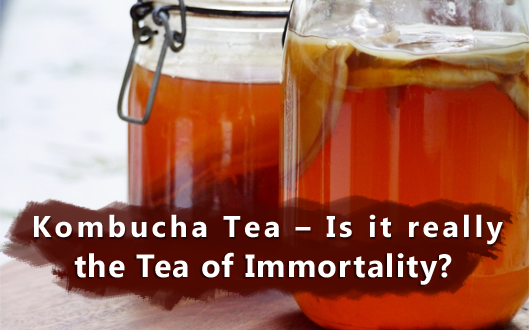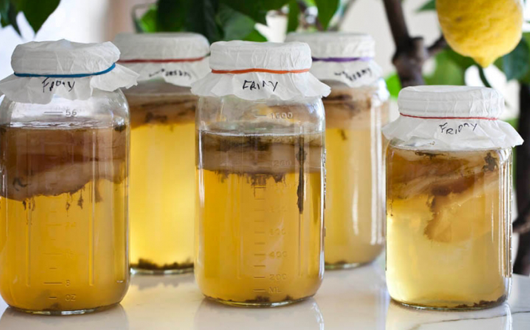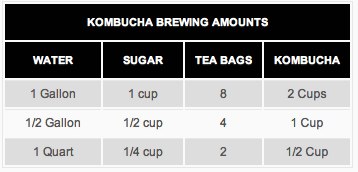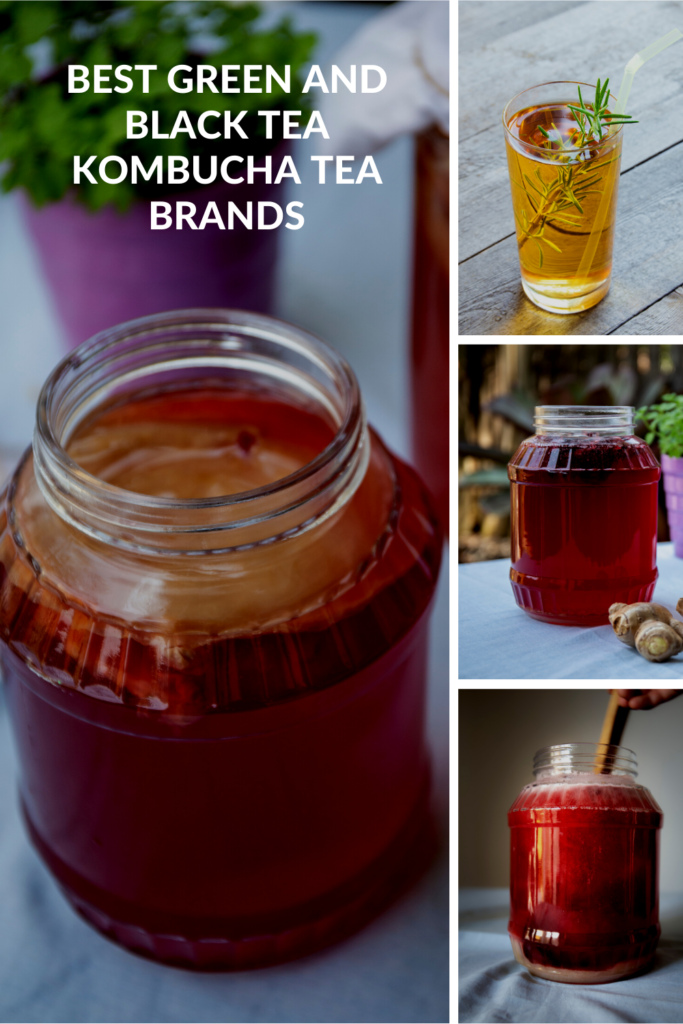
Ancient Chinese Medicine refers to the Kombucha tea as the Tea of Immortality and the elixir of life.
Kombucha tea has been enjoying the spotlight for a few years now — partly because probiotics have gone from simply being “funky health supplements” to finding their way into a wide variety of foods, and also because the tea possesses some amazing health benefits as well.
It serves both as an energizing tea with natural cultures that claim to boost digestion and metabolism at the same time.
Related: Best Superfoods for Boosting Metabolism.
Kombucha is a form of black or green tea and sugar that is fermented, using a combination of bacterial and fungal cultures, a.k.a. SCOBY (Symbiotic Colony Of Bacteria and Yeast), that form a “mushroom” on top of the fermentation vessel, giving it the name, “Kombucha Mushroom Tea”.
It has an acidic, fizzy, mildly sweet and vinegar-like flavor. The strength of the tea can be adjusted by the number of tea bags used and the brewing time.
If you are interested in green tea, we encourage you to read here, and here.
Green and Black Kombucha Tea Benefits
Green or Black Kombucha is a probiotic that helps both the stomach to better digest food and helps the spleen to deliver more nutrition.
This is how the body heals itself.
- Improves Digestion
- Supports Immune System
- Anti-Depressant
- Weight Loss
- Increases Energy
- Detoxifies and Cleanses
- Kills Yeast
- Reduces Joint Pain
- Prevents Cancer
How to Make Green and Black Kombucha Tea at Home?

The process of making Kombucha is inexpensive and fairly simple. It requires only three things-
- Black or green tea
- Sugar
- Concoction of bacteria and yeast
Mix all the above and let the mixture ferment in a glass, or in a ceramic or glass container, for at least a week.

Best Green and Black Tea Kombucha Brands
Here are the 3 best Green and Black Kombucha Tea Brands :
Does Kombucha Tea Have Alcohol?
During the week, microbe production speeds up as the bacteria feast on the added sugar, grow and multiply forming a gelatinous disc on top of the tea, called the SCOBY, or “symbiotic colony of bacteria and yeast.”
The yeast does produce a little bit of alcohol as a by-product of fermentation, but the bacteria in the culture convert the alcohol into organic acids.
Only minute quantities of alcohol, typically 1% by volume remains, but those who are avoiding alcohol should be aware.
Every time you make the Kombucha, it forms a new layer or SCOBY, on the surface of the liquid.
These can be left to thicken the SCOBY or can be divided, giving you spare cultures you can store in some sweet tea in the fridge, just in case something should happen to your active culture.
Or you might want to pass on extra Kombucha cultures to friends or use a new SCOBY to start another batch of Kombucha.
Kombucha Tea Side Effects and Warnings
There is little or no evidence supporting any pharmacologic claims for Kombucha.
Kombucha Tea While Pregnant Or BreastFeeding
Do not use Kombucha tea if:
- Pregnant or Nursing
- Suffering from a condition that does not allow even low levels of sugar, caffeine or alcohol
- Weak immune system
Read about the Superfoods that can build your immunity, here.
The Bottom Line
Kombucha is a nutritious, flavorful, inexpensive drink that is relatively low in calories and sugar.
As with any food or drink, we suggest not to overdo it but to enjoy it in moderation.
The risk is minimal if you drink homemade Kombucha or opt for a reputable, commercial brand that is properly prepared.
Enjoyed Best Green and Black Tea Kombucha Tea Brands? Share it with your friends so they too can follow the Superfoodsliving journey.
Share on Pinterest
